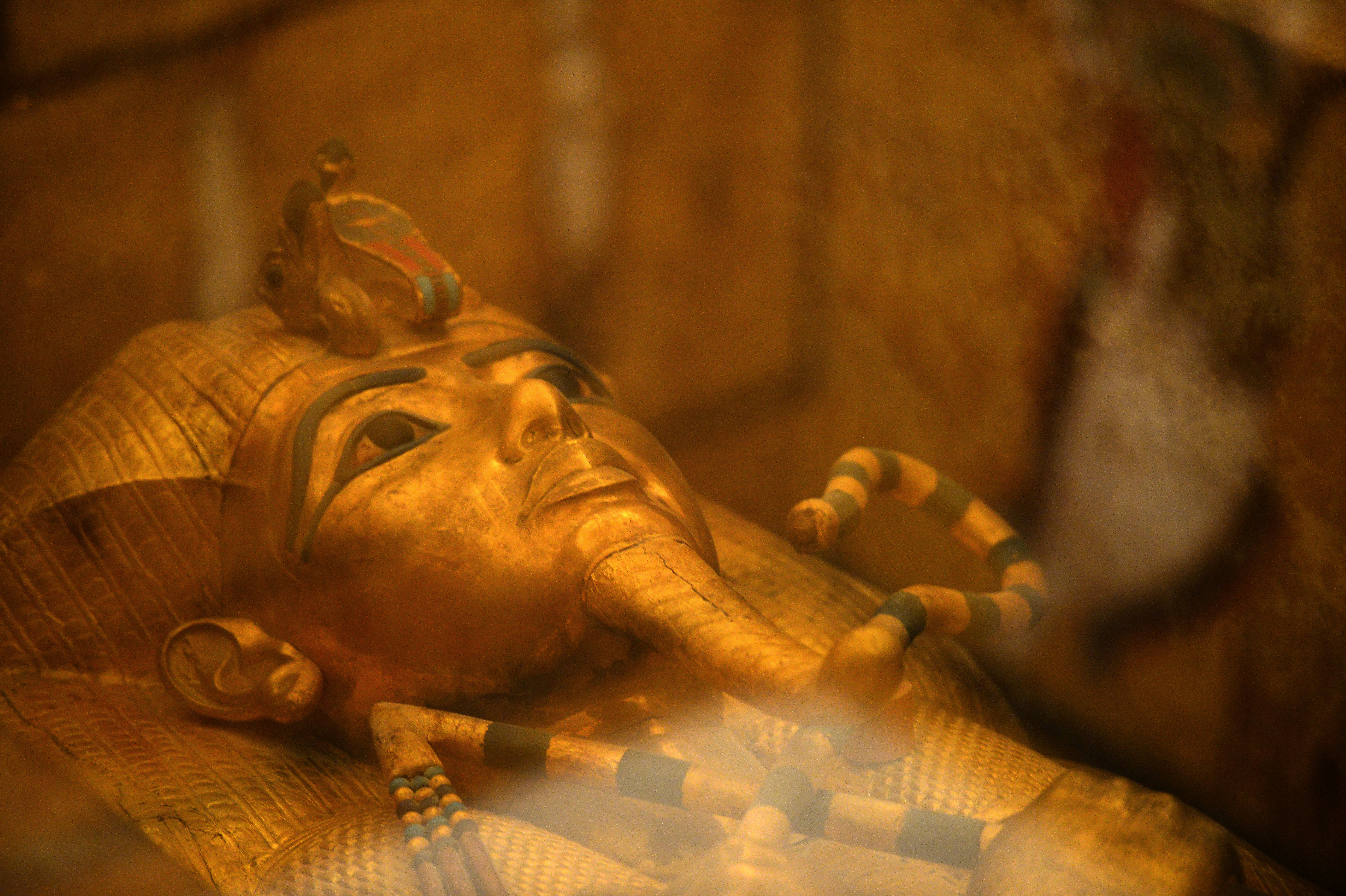Egyptologist in Canada presents theory of two queen rule before Tutankhamun

This picture taken on January 31, 2019 shows the head of the golden sarcophagus of the 18th dynasty Pharaoh Tutankhamun (1332–1323 BC), displayed in his burial chamber in his underground tomb (KV62) in the Valley of the Kings on the west bank of the Nile river opposite the southern Egyptian city of Luxor (650 kilometres south of the capital Cairo). – The famous tomb underwent a nine-year conservation by a team of international specialists. (Photo by MOHAMED EL-SHAHED / AFP)
MONTREAL, Canada — Tutankhamun, the boy king of ancient Egypt, came to power only after two of his sisters jointly held the throne, according to an Egyptologist at Canada’s Universite du Quebec a Montreal (UQAM).
Researchers have known for more than half a century that a queen had reigned before Tutankhamun, whose intact tomb was discovered in 1922, sparking global interest in Egyptology.
Some thought she was Nefertiti, the sister and wife of Akhenaten, who proclaimed herself “king” following his death. Others believed it to be the eldest daughter Princess Meritaten.
UQAM’s Valerie Angenot says she has now conducted an analysis based on the study of symbols which revealed that two daughters of Akhenaten seized power at his death while their brother Tutankhamun, aged four or five at the time, was too young to rule.
Akhenaten had six daughters before having his son later on, who had a frail constitution and was plagued by illness throughout his life.
Akhenaten married Meritaten to prepare her to one day rule, but some inscriptions also indicate he was grooming another daughter Neferneferuaten Tasherit, for rule.
They jointly ascended to the thrown under a common name, according to Angenot.
Her work was presented at American Research Center in Egypt annual conference in Alexandria, Virginia, where she said it was well received.
“Egyptology is a very conservative discipline, but my idea was surprisingly well received, except for two colleagues who fiercely opposed it,” she said, adding she hoped it could advance knowledge on succession issues in Ancient Egypt and of the Amarna Period. /muf